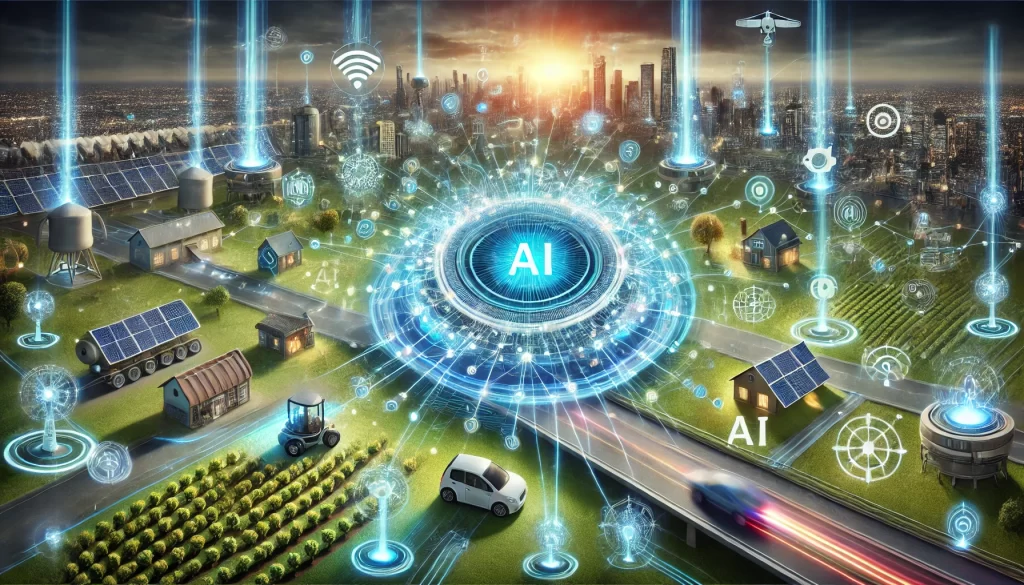Artificial Intelligence (AI) is revolutionizing numerous industries, but the foundation of its effectiveness lies in its ability to perceive the world accurately. This is where AI sensors come into play. These are advanced sensors designed to gather, interpret, and process data in ways that enhance the performance of AI systems. From autonomous vehicles to smart homes, AI sensors are the silent yet crucial enablers of intelligent functionalities.

Japan is also expected to see a high growth in the AI sensor Market, driven by the country’s strong focus on AI research and development. The Japanese government has launched several initiatives to promote the adoption of AI technology in various sectors, including healthcare, manufacturing, and transportation.
What are AI Sensors?
AI sensors are devices equipped with capabilities beyond standard sensors. They not only detect and measure physical phenomena—like temperature, light, motion, or sound—but also have integrated AI algorithms that can analyze and interpret data at the edge. This capability reduces the need for transferring massive amounts of data to centralized systems, enabling real-time decision-making.
Types of AI Sensors
- Vision Sensors: Cameras integrated with AI algorithms for object recognition, facial recognition, and scene analysis. Examples include those used in self-driving cars and surveillance systems.
- Audio Sensors: Microphones capable of processing audio signals for applications like voice recognition in virtual assistants or detecting anomalies in industrial equipment.
- Motion Sensors: Accelerometers and gyroscopes paired with AI for gesture recognition, activity tracking, and augmented reality applications.
- Environmental Sensors: Sensors for temperature, humidity, and air quality, enhanced with AI to predict environmental changes or optimize energy usage in smart buildings.
Key Applications of AI Sensors
- Healthcare:
- AI sensors in wearable devices monitor vital signs and alert users or medical professionals about potential health risks.
- Smart prosthetics use motion and pressure sensors to mimic natural movement.
- Automotive:
- Autonomous vehicles leverage vision, LiDAR, and radar sensors integrated with AI for navigation and obstacle avoidance.
- AI-enabled sensors enhance driver-assistance systems for improved safety.
- Manufacturing:
- Predictive maintenance is driven by AI sensors that monitor machinery and predict failures before they occur.
- Quality control systems use vision sensors to detect defects in real time.
- Smart Homes:
- AI sensors in home automation systems adjust lighting, temperature, and security settings based on user preferences and behavior.
- Environmental sensors ensure optimal living conditions by monitoring air quality and energy usage.
- Agriculture:
- AI sensors in precision farming analyze soil conditions, predict weather patterns, and optimize irrigation for higher crop yields.
- Livestock monitoring systems use motion and temperature sensors to ensure animal health.
Advantages of AI Sensors
- Real-time Processing: With on-device intelligence, AI sensors process data quickly, enabling immediate actions.
- Enhanced Accuracy: AI algorithms improve the precision of data interpretation, reducing false positives or errors.
- Energy Efficiency: By processing data locally, these sensors reduce the energy consumption associated with data transmission.
- Scalability: AI sensors can be easily integrated into various systems, from personal devices to industrial machinery.
Challenges and Future Directions
- Data Privacy: With sensors constantly collecting data, ensuring user privacy is a growing concern.
- Cost: Advanced AI sensors can be expensive, limiting their adoption in low-budget applications.
- Integration: Seamlessly integrating AI sensors with existing systems requires sophisticated software and hardware solutions.
The future of AI sensors lies in advancements like neuromorphic computing, which mimics the human brain for even more efficient data processing. Furthermore, innovations in materials science may lead to more compact, durable, and cost-effective sensors.
AI sensors are at the forefront of the technological evolution, providing machines with the senses they need to perceive and interact with the world. As AI continues to permeate every aspect of life, the role of AI sensors will only become more significant, ensuring smarter, faster, and more accurate systems across industries.